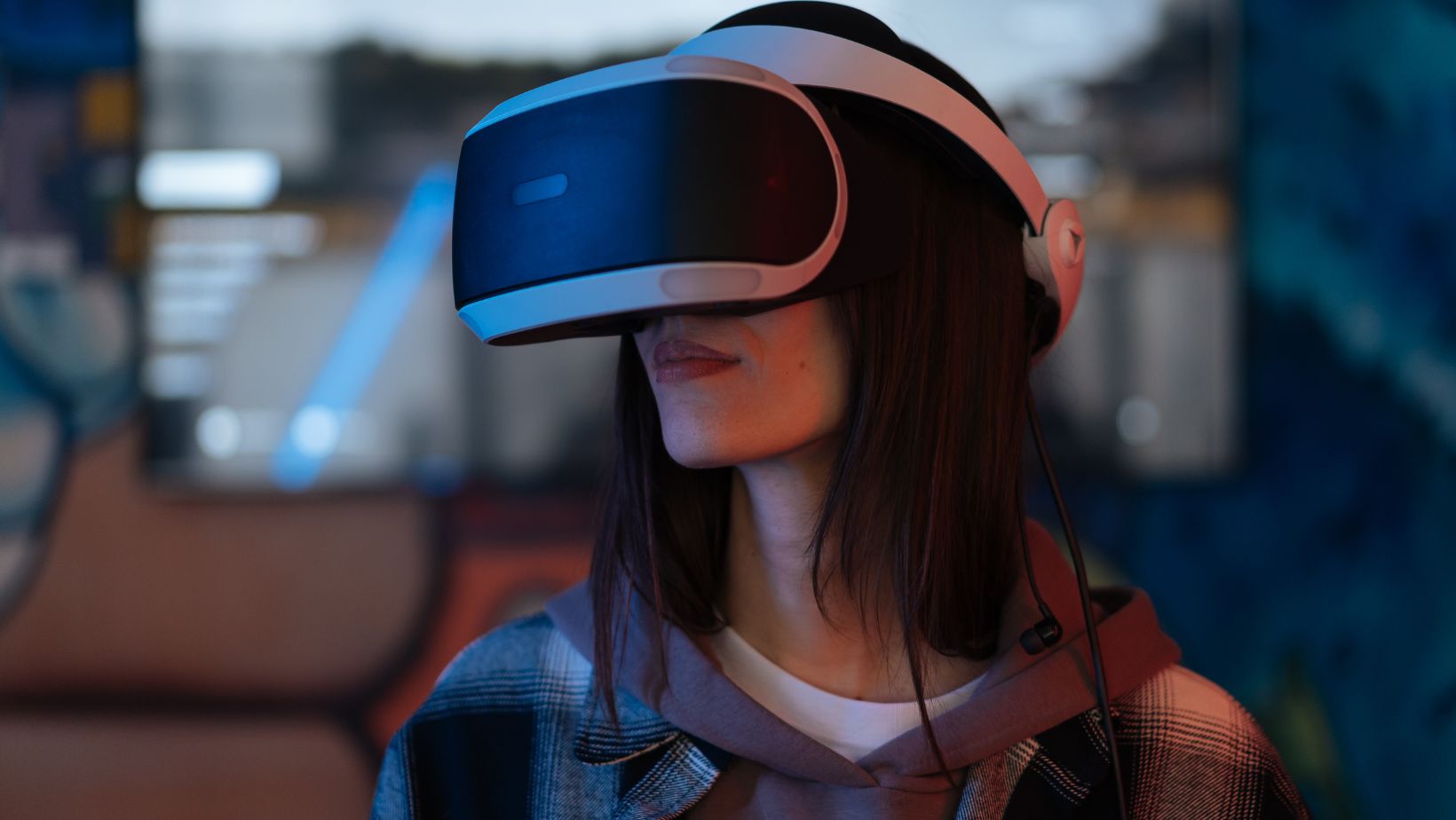The Czech Republic is causing a stir in the technological sphere with its revolutionary progress in virtual reality. Previously recognized mainly for its historical significance and beautiful architecture, the nation is now rising as a strong contender in VR innovation. This change is revamping diverse sectors, ranging from gaming to healthcare, thereby placing the Czech Republic prominently on the worldwide tech radar.
Czech VR companies, fueled by advanced research and a blossoming startup environment, are redefining the limits of the possible. They are not merely creating immersive experiences but reshaping how individuals engage with digital realms. As the globe recognizes this technological revolution, the Czech Republic is positioned to emerge as a front-runner in the forthcoming era of virtual reality.
Overview Of Czech Virtual Reality Evolution
Czech VR has quickly advanced due to ongoing innovation and concentrated research. From the early 2010s, the Czech Republic has incorporated state-of-the-art VR technologies across different sectors. For instance, gaming companies employ VR to improve player experiences with immersive environments. Leading companies such as Bohemia Interactive Simulations and Beat Games, recognized for games like “ARMA” and “Beat Saber,” have expanded the limitations of VR.
In healthcare, Czech VR companies are developing solutions for medical training and patient rehabilitation. Virtual simulations help medical professionals practice surgeries and procedures in a risk-free environment. The utilization of VR in therapy has also enabled personalized treatments for patients with cognitive and motor impairments.
Educational establishments in the Czech Republic, such as Charles University, have adopted VR as a tool for interactive learning. The applications vary from virtual excursions to in-depth investigations of historical locations. With the integration of VR, teachers are able to offer students captivating and unforgettable educational experiences.
The growth of the Czech VR industry has been supported by substantial investments from both the government and private sector. The development of new VR technologies and applications is encouraged through grants and funding initiatives. This partnership between sectors fosters ongoing innovation and establishes the Czech Republic as a frontrunner in the VR field.
Numerous startup incubators and accelerators form part of the VR ecosystem in the Czech Republic. These organizations offer resources and guidance to budding VR companies, promoting a cooperative atmosphere. Consequently, the VR sector in the Czech Republic continues to flourish and grow.
- In 2012, VR military training programs were launched by Bohemia Interactive Simulations.
- 2015: Charles University introduces VR-based courses.
- In 2018, Beat Games launched “Beat Saber,” which achieved worldwide success.
- In 2020, the government allocated substantial funds for the development of virtual reality in various sectors.
The development of Czech VR mirrors the country’s dedication to progressing technology. By capitalizing on inventive initiatives, the Czech Republic cements its position in the worldwide VR revolution.
Key Innovations And Breakthroughs
The remarkable advancements in the Czech VR landscape are significantly contributing to global technological trends. Innovations are spanning various sectors, improving user experiences and increasing practical applications.
AR And VR Technologies
In the Czech Republic, augmented reality (AR) and virtual reality (VR) technologies have experienced swift progress. These technologies are being combined by companies to generate mixed reality experiences, which are crucial for sectors such as education and healthcare. Such hybrid solutions facilitate virtual simulations integrated with real-world interaction, enhancing results in training and treatment.
Pioneering Companies In The Czech Republic
Several trailblazing companies are leading the way in the Czech VR industry. Bohemia Interactive Simulations, for example, focuses on military training simulations and improves strategic training with immersive VR environments. Beat Games, the company behind “Beat Saber,” is transforming gaming with its rhythm-based VR experience. VRgineers produces high-resolution VR headsets that are utilized in various fields, including automotive design and space exploration. These companies are propelling Czech VR innovation and setting global standards.
Significant Milestones
Czech VR’s progress is marked by significant milestones. For instance, “Beat Saber,” a game released by Beat Games in 2018, became a worldwide sensation, with over four million copies sold. Moreover, VRMedical stands out in the healthcare sector with its VR solutions for surgical training and rehabilitation.

Furthermore, the Czech Republic is the annual host of VRFest, an event that highlights advancements and encourages collaboration among VR enthusiasts and professionals. These significant events underscore the crucial role the Czech Republic plays in the field of VR technology.
Applications Across Industries
VR technology from the Czech Republic is revolutionizing a variety of sectors, including healthcare and entertainment. These innovations are propelling industry-specific applications and expanding the potential of what VR can accomplish.
Healthcare
Czech VR influences healthcare by providing immersive medical training and rehabilitation tools. Firms such as VRMedical generate lifelike simulations for surgical training, minimizing hazards and boosting abilities. Tailored VR therapies assist patients with cognitive and motor impairments, providing captivating, personalized treatment schemes that enhance recovery results.
Education
Charles University and other educational establishments in the Czech Republic are utilizing VR for interactive learning. This technology allows students to take virtual field trips and explore historical sites, making complex subjects more accessible and engaging. VR classrooms offer immersive educational experiences that improve understanding in subjects like biology and history.
Entertainment
Czech VR has revolutionized the entertainment sector, especially in the gaming industry. Firms such as Bohemia Interactive Simulations and Beat Games are at the forefront with well-liked games like “Beat Saber”, providing engaging and immersive experiences for audiences worldwide. These advancements establish new benchmarks and reveal VR’s potential to completely transform entertainment via interactive settings and captivating content.
Challenges And Opportunities
The growth and innovation of the industry are being shaped by various challenges and opportunities that Czech VR technology is facing.
Technological Barriers
A number of technological challenges hinder the progression of Czech VR. The high costs associated with development restrict smaller companies from entering the market. The advanced hardware requirements, stemming from VR’s immersive quality, often result in costs that are too high for consumers. Furthermore, guaranteeing compatibility across various VR platforms introduces technical difficulties, which obstruct widespread usage. To tackle these obstacles, strategic investments in research and development are necessary to make VR technology more affordable and accessible.
Market Potential
The potential for growth in the Czech VR market is significant across various sectors. The gaming industry has seen profitable opportunities in creating immersive VR content, with companies like Bohemia Interactive Simulations thriving. The healthcare sector also presents substantial possibilities for expansion and innovation, ranging from surgical training to therapy. The education sector views VR as a transformative tool for learning, with institutions such as Charles University being at the forefront. These varied uses emphasize the considerable market potential available for Czech VR, promoting more extensive technological integration and market penetration.
Impact On The Global VR Market
The innovative strides in VR technology by the Czech Republic have made a significant impact on the global market. The distinctive approach of Czech VR, which involves integrating VR with various sectors, has greatly contributed to technological advancements worldwide.
Comparisons With Other Countries
Compared to other nations, the Czech Republic’s VR industry is noteworthy. While the US and China overshadow others with their larger market shares and investments, the Czech Republic shines in niche innovations and practical applications. Czech firms such as Bohemia Interactive Simulations and Beat Games, for example, focus on gaming and mixed reality, in contrast to their counterparts who typically concentrate on wider commercial applications.

Moreover, the Czech VR ecosystem enjoys significant government backing and cooperative startup settings, driving fast expansion and innovative solutions that often exceed the technological complexity seen in bigger markets.
Contribution To Global Standards
Czech Virtual Reality (VR) companies play a significant role in establishing international standards. For instance, VRgineers is renowned for producing high-resolution VR headsets that satisfy the stringent requirements of professional simulations. Likewise, Czech companies’ fusion of Augmented Reality (AR) and VR reshapes global practices, notably in the education and healthcare sectors. The global acclaim of “Beat Saber” demonstrates the power of Czech innovations in captivating international audiences and setting new standards for VR gaming experiences. These remarkable contributions solidify the Czech Republic’s status as a pivotal contributor to the evolution and refinement of VR technologies, thus shaping global trends and standards.
Future Prospects Of VR In The Czech Republic
Promising prospects abound for Czech VR technology across diverse industries. Foreseen advancements in both hardware and software are set to amplify immersive experiences. Major investments are predicted to speed up the creation of innovative applications in sectors such as gaming, healthcare, and education.
In the gaming industry, persistent innovation from corporations such as Bohemia Interactive and Beat Games is set to usher in more intricate and captivating VR experiences. It’s probable that new VR games will integrate cutting-edge AI and haptic feedback, thus offering an unrivaled level of interactivity.
The evolving capabilities of VR will be advantageous to healthcare. Czech VR companies are working on creating progressively realistic simulations for surgical training and therapeutic alternatives for mental health treatments. Future applications of VR will offer more comprehensive and tailored medical solutions.
Universities will increasingly adopt VR for immersive learning. Students will be able to interactively explore complex concepts in improved VR environments. Virtual labs and simulations will become indispensable learning tools in educational institutions.
Investments from the government and private sector will enhance the VR industry in the Czech Republic. These investments will back startups and promote partnerships, leading to ongoing innovation. Yearly events such as VRFest will highlight new technologies and encourage information exchange among professionals.
Companies in the Czech Republic that specialize in virtual reality (VR) will also prioritize mixed reality (MR) applications. By merging augmented reality (AR) with VR, MR can develop multifaceted solutions for fields such as training, education, and professional simulations. These technological advancements will establish international benchmarks and strengthen the standing of the Czech Republic in the worldwide VR market.
Even though there are present technological obstacles, the future of Czech VR seems bright. Continuous research and development will likely make VR technology more available and commonly used. The Czech Republic is well-positioned to spearhead the next round of VR innovations, shaping worldwide trends and standards.
Conclusion
The Czech Republic’s dedication to innovative virtual reality technology is transforming sectors and establishing global benchmarks. With substantial contributions in sectors like gaming, healthcare, and education, VR companies from the Czech Republic are spearheading technological progress and immersive experiences. Continued growth and innovation are guaranteed through strategic investments and partnerships, setting the country up as a leader in the VR space. As research and development continue, Czech VR technology stands ready to tackle existing challenges and spearhead the next global VR trends. The future of VR in the Czech Republic is full of promise, with the potential to shape and revolutionize digital interactions globally.

